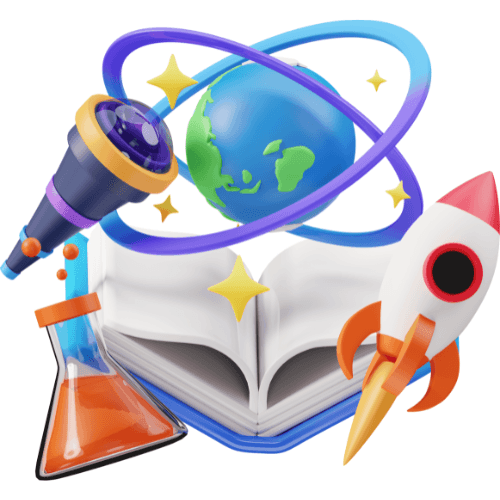How Has Citizen Science Contributed to Your Research Objectives?
When we asked science professionals to highlight the impact of citizen science on their work, a senior researcher kicked off the conversation with insights on how DNA research is revolutionizing genealogy. Alongside expert perspectives, we've included additional answers that reflect the diverse contributions of non-professionals to scientific endeavors. From expanding the scope of geographical research to amateur astronomers discovering new celestial objects, these responses showcase the valuable role of citizen science in advancing research objectives.
- DNA Research Revolutionizes Genealogy
- Citizens Analyze Ganga River Pollution
- Citizen Science Enhances Ecological Data
- Volunteers Expand Geographical Research Scope
- Citizen Science Reduces Research Costs
- Crowdsourced Data Enriches Species Models
- Amateur Astronomers Discover Celestial Objects
DNA Research Revolutionizes Genealogy
The rise in direct-to-consumer DNA tests over the past two decades has not only spurred citizen scientists to solve their genealogical brick walls, but methods developed for genealogy are continuously being refined and transitioned to new applications. For example:
- African Americans now have tools to reach beyond the wall of slavery and identify unnamed ancestors.
- Investigative genetic genealogists use certain DNA databases approved for law enforcement to solve cold cases and provide closure to families who have experienced the loss of a loved one.
- Advances in DNA research enable the remains of soldiers killed in action to be identified, repatriated, and returned to their family for an honorable burial.
- Adoptees now have the tools to connect with their biological family and discover vital health background information.
- State-of-the-art Y-DNA testing provides an opportunity for individuals to extend direct male genealogical lines far beyond the limits of autosomal DNA and for historians to examine questions plaguing historians for centuries.
As a professional genetic genealogist, I am honored to experience life-changing discoveries with clients daily. My most personally rewarding discovery, which propelled my interest in DNA research, was getting to know cousins discovered through a surprise in my own DNA results.
Citizens Analyze Ganga River Pollution
In citizen science, the general population is involved in scientific projects that yield trustworthy data and information that can be used by researchers, policymakers, or the general public, and that is subject to the same peer-review process as traditional science. An example of a study where citizen science contributed to data science and machine learning research objectives is connected to water pollution in the Ganga River investigation through quality analysis. We are using the Holy River Ganga as a test bed for our initiative, the “Biodiversity Informatics and Citizen Science for Ganga River” initiative. The project's objectives were to monitor the Ganga River's biodiversity and water quality.
Citizens gathered large datasets over time as a means of data collection, offering a wide range of temporal and spatial coverage of data on water quality along various river segments. The fact that this data was gathered in a variety of settings—rural and urban—and represented a range of pollution sources made it essential. This data was subsequently analyzed using data science methods and machine learning algorithms. The objective of this project was to find trends, patterns, and correlations between various pollution sources and water quality measures.
The initiative produced new information about the scope and causes of the Ganga River's water pollution. Researchers pinpointed pollution hotspots, evaluated the effects on biodiversity, and suggested focused treatments to improve the quality of the water by utilizing machine learning.
The initiative made it possible to generate high-quality data at a scale that would be difficult to accomplish using only conventional scientific procedures. This project is an example of how data science and machine learning, in conjunction with citizen science, can greatly aid in comprehending and resolving issues related to water contamination in a large river system.

Citizen Science Enhances Ecological Data
Citizen science initiatives have played a pivotal role in enhancing the variety of ecological data available to researchers. By including observations from a wide array of individuals, irrespective of their professional background, the data pool now reflects a more accurate image of varied ecosystems. This approach ensures that subtle changes in the environment do not go unnoticed, as more observers contribute to a comprehensive dataset.
The richness of the ecological information gathered provides a robust foundation for sound environmental policies and conservation efforts. Engage in citizen science today to help build a clearer picture of our natural world.
Volunteers Expand Geographical Research Scope
The involvement of volunteers in scientific projects has notably expanded the geographical scope of research. Individuals across different regions contribute by documenting findings in locations researchers cannot always reach. This collective effort allows for an extensive compilation of data that spans across different ecosystems and geographical zones.
The resultant broad coverage enhances the understanding of regional variances in scientific phenomena. Consider contributing to a citizen science project in your area and aid in widening the research landscape.
Citizen Science Reduces Research Costs
Incorporating public participation in data collection efforts has been a huge cost-saving strategy for many research projects. When financial resources are limited, enlisting the help of interested volunteers can dramatically reduce the budget needed for extensive data gathering operations. Moreover, the utilization of citizen-collected data often means that more funds can be allocated toward analysis and implementation of findings.
The financial efficiency introduced by citizen science cannot be overstated, making it a critical component in pragmatic research planning. Start contributing to a citizen science project, and help make impactful research more affordable.
Crowdsourced Data Enriches Species Models
Crowdsourcing within the scientific community has greatly enriched species distribution models by providing a wealth of data points from areas both common and remote. Citizen scientists, through their observations and reports, have helped create more detailed and encompassing models that reflect species patterns more accurately. This has been particularly beneficial in understanding the migration, breeding habits, and population dynamics of various species.
The aggregation of such data has afforded researchers new insights that would have been difficult to obtain otherwise. Get involved in local biodiversity projects to assist in enhancing our understanding of species distributions.
Amateur Astronomers Discover Celestial Objects
Amateur astronomers have made significant contributions to space research by discovering new celestial objects. With personal telescopes and a passion for observing the night sky, these individuals have managed to spot previously unknown stars, planets, and other cosmic phenomena. Such discoveries have not only added to the compendium of cosmic knowledge but have also inspired professional astronomers to explore new areas of the universe.
The discoveries made by citizen scientists serve as a reminder of the vast potential that lies in collaborative scientific endeavors. Join a community of amateur astronomers and you could contribute to the next big celestial finding.

